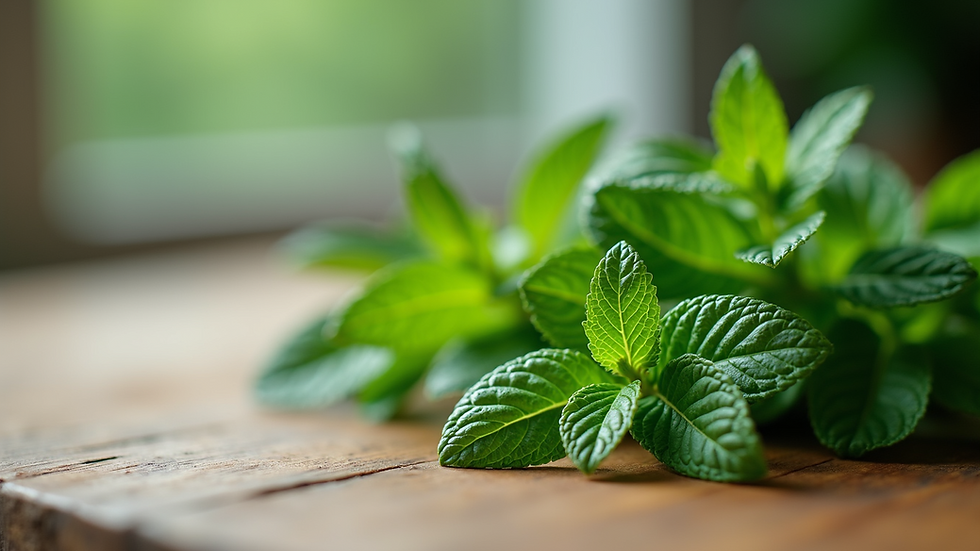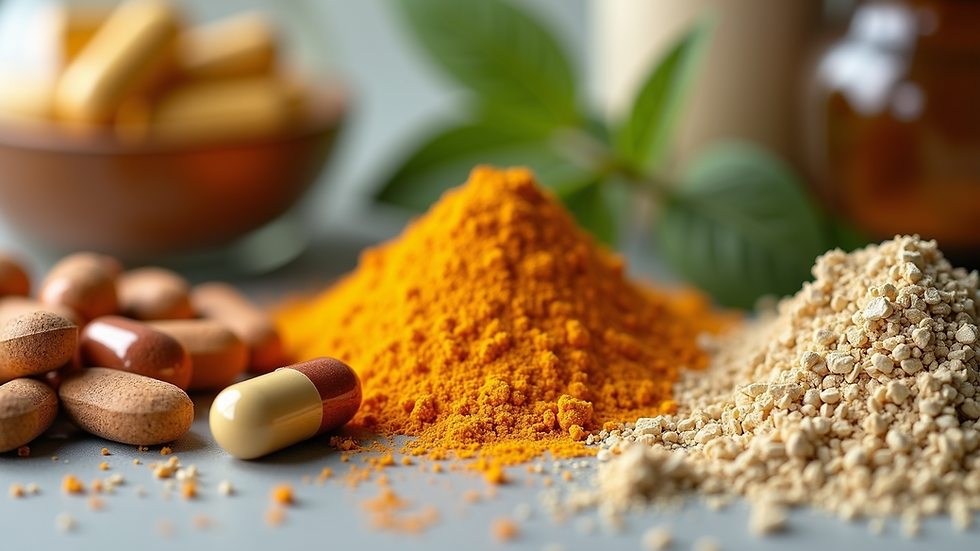Top 10 Herbal Remedies for Common Ailments
- Timothy Price
- Jul 30
- 3 min read
In today's fast-paced world, many people are turning to nature for solutions to their everyday health issues. Herbal remedies have been used for centuries, offering a natural alternative to over-the-counter medications. Whether you are dealing with a headache, digestive issues, or stress, there is likely an herbal remedy that can help. In this post, we will explore the top 10 herbal remedies for common ailments, providing you with practical information to enhance your wellness journey.
1. Peppermint for Digestive Issues
Peppermint is a popular herb known for its soothing properties. It can help relieve symptoms of indigestion, bloating, and gas. The menthol in peppermint relaxes the muscles of the gastrointestinal tract, making it easier for food to pass through.
How to Use: You can enjoy peppermint tea after meals or take peppermint oil capsules.
Tip: Always consult with a healthcare provider before starting any new supplement.
2. Ginger for Nausea
Ginger is another powerful herb that has been used for centuries to combat nausea. It is particularly effective for morning sickness during pregnancy and motion sickness.
How to Use: Fresh ginger can be added to teas, smoothies, or meals. Ginger candies are also a convenient option.
Tip: For quick relief, try sipping on ginger tea when you feel nauseous.
3. Chamomile for Sleep and Anxiety
Chamomile is well-known for its calming effects. It can help reduce anxiety and promote better sleep. The gentle sedative properties of chamomile make it a great choice for those struggling with insomnia.
How to Use: Brew chamomile tea before bedtime to help you relax.
Tip: Pair chamomile tea with a warm bath for an even more soothing experience.
4. Echinacea for Immune Support
Echinacea is often used to boost the immune system and help prevent colds and flu. This herb is believed to stimulate the production of white blood cells, which are essential for fighting off infections.
How to Use: Echinacea is available in various forms, including teas, capsules, and tinctures.
Tip: Start taking echinacea at the first sign of a cold for the best results.
5. Lavender for Stress Relief
Lavender is famous for its pleasant aroma and calming effects. It can help reduce stress and anxiety, making it easier to unwind after a long day.
How to Use: Use lavender essential oil in a diffuser or add a few drops to your bath.
Tip: Keep a sachet of dried lavender under your pillow for a restful night's sleep.
6. Turmeric for Inflammation
Turmeric contains curcumin, a compound known for its anti-inflammatory properties. It can help alleviate pain associated with arthritis and other inflammatory conditions.
How to Use: Add turmeric to your cooking or take it in supplement form.
Tip: Pair turmeric with black pepper to enhance its absorption in the body.
7. Honey for Sore Throats
Honey is not just a sweet treat; it also has natural antibacterial properties. It can soothe a sore throat and help with coughs.
How to Use: Mix honey with warm water or herbal tea for relief.
Tip: Add lemon juice to honey for an extra boost of vitamin C.
8. Garlic for Heart Health
Garlic is known for its numerous health benefits, particularly for heart health. It can help lower blood pressure and cholesterol levels.
How to Use: Incorporate fresh garlic into your meals or take garlic supplements.
Tip: Crushing garlic before consuming it can enhance its health benefits.
9. Aloe Vera for Skin Irritations
Aloe vera is a versatile plant known for its soothing properties. It can help with sunburns, cuts, and other skin irritations.
How to Use: Apply fresh aloe vera gel directly to the affected area.
Tip: Keep an aloe vera plant at home for easy access to fresh gel.
10. Ashwagandha for Stress and Fatigue
Ashwagandha is an adaptogenic herb that helps the body manage stress. It can also boost energy levels and improve overall well-being.
How to Use: Ashwagandha is available in powder or capsule form.
Tip: Mix ashwagandha powder into smoothies or oatmeal for a nutritious boost.
Incorporating herbal remedies into your daily routine can be a simple and effective way to address common ailments. However, it is essential to remember that everyone's body is different. What works for one person may not work for another. Always consult with a healthcare professional before starting any new herbal regimen, especially if you are pregnant, nursing, or taking medications.
By exploring these herbal remedies, you can take a proactive approach to your health. Nature has provided us with a wealth of options to support our well-being. Embrace the power of herbs and discover how they can enhance your life.



Comments